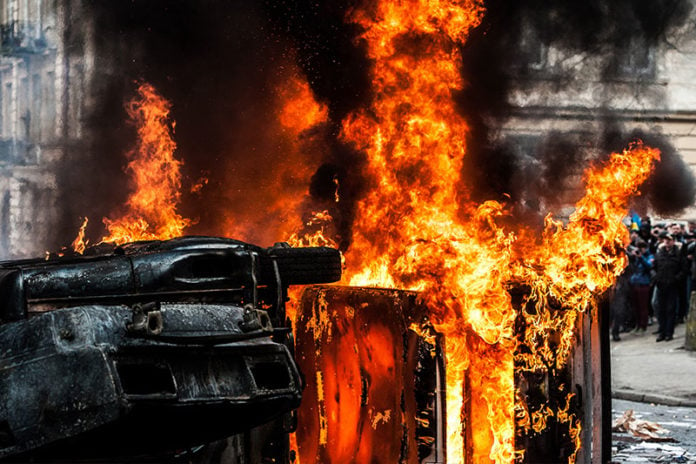Libyan militia leader Ahmed Abu Khatallah has just been sentenced to 22 years in prison Wednesday on charges related to the 2012 Benghazi attacks. Those attacks, which targeted the US embassy in Libya, killed four Americans and ignited a political firestorm against then Secretary of State, Hillary Clinton.
Last November, a federal jury found Abu Khatallah guilty on four of 18 charges. This decision came more than three years after US special forces captured Khatallah at a beach villa, and extracted him to the United States so he could be tried for his crimes.
Prosecutors in the case portrayed Abu Khattalah as the mastermind of the Benghazi attacks. He was described as a “stone-cold terrorist.”
But the federal jury ultimately found him not guilty of the murders of US Ambassador J. Christopher Stevens, as well as the three other government employees who were killed in the attacks: Sean Smith, Tyrone Woods and Glen Doherty.
“The arrest, prosecution, and sentencing of (Abu Khattalah) were critical steps to ensuring that justice is served for these dedicated Americans and public servants,” a statement from the State Department read. “Each sacrificed his life promoting American ideals.”
In 2014, then-President Barack Obama described Abu Khatallah as “one of the masterminds of the attack,” and claimed credit for his capture.
Obama depicted the capture of Khatallah as “a message to the world, that when Americans are attacked, no matter how long it takes, we will find those responsible and we will bring them to justice. Regardless how long it takes, we will find you,” Obama said.
Although he loved to portray himself as a peace-loving diplomat, that statement accurately reflects Obama’s legacy as a president responsible for hundreds of extra-judicial killings of US enemies, often by drone strike.
His foreign policy legacy is marred by this inconsistency; a willingness to kill a little, but not enough to prevent the Muslim world from descending into total chaos. Obama overpromised and under delivered, saying he would end American wars overseas and then letting them go on indefinitely. He also underestimated the danger of ISIS.
So, Benghazi was only one of his many foreign policy mishaps. The attack on the US embassy in Libya was an embarrassing blow to the US government. It led to a series of major investigations at the State Department and in Congress.
Benghazi also ignited political controversy that damaged Obama and probably contributed to Hillary Clinton’s eventual political failure in 2016.
Critics blamed Clinton for displaying a kind of waffling indecision in response to the attack. Most crucially, Republicans criticized the White House for blaming the Benghazi attacks on spontaneous protests against an anti-Muslim video made in America, when there was credible evidence to suggest, from the start, that it had been a coordinated and pre-planned attack.



























